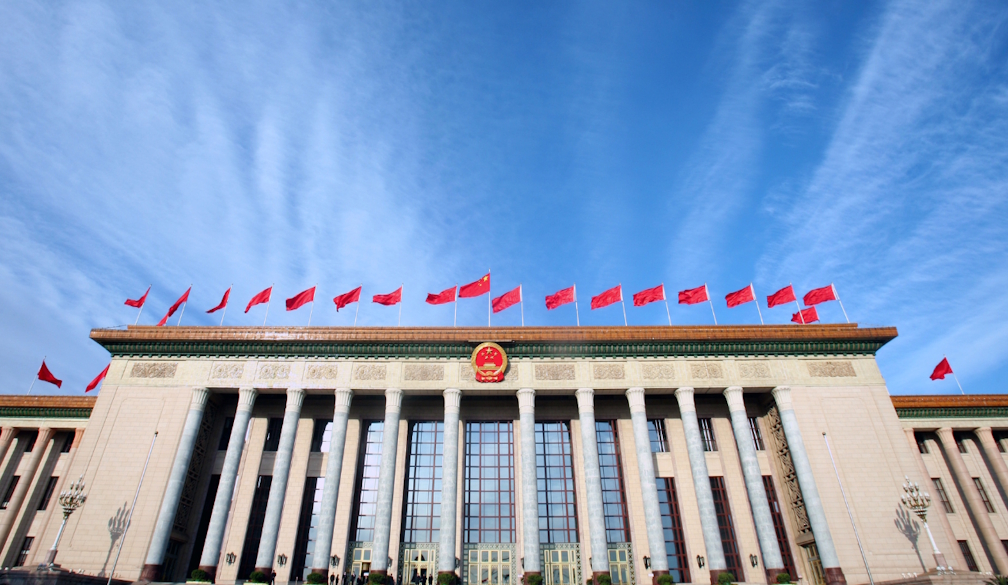Is Espionage by China a Legitimate Threat to Australian Society and Business Interests?
- Written by Times Media

A Growing Concern in the Indo-Pacific
In recent years, espionage by foreign powers—particularly China—has become one of the most pressing national security and economic issues facing Australia. Once considered a matter of Cold War intrigue, espionage today is more digital, more commercial, and far more pervasive. Australia’s intelligence community, from the Australian Security Intelligence Organisation (ASIO) to the Department of Defence, has repeatedly warned that foreign espionage and interference now exceed Cold War levels.
The question is not whether China is engaging in intelligence-gathering activities in Australia—it almost certainly is—but how serious a threat this poses to society and to Australian business interests.
Australia’s Strategic Vulnerability
Australia occupies a unique position in the Indo-Pacific region. As a close ally of the United States and a member of the “Five Eyes” intelligence-sharing alliance (with the US, UK, Canada, and New Zealand), it sits at the crossroads of global power competition. China views Australia as both a valuable source of resources, technology, and strategic information—and as a critical player in shaping Western policy in the Asia-Pacific.
This makes Australia a high-value target for intelligence operations. ASIO has publicly confirmed that multiple foreign intelligence services, including China’s Ministry of State Security (MSS), actively seek to influence or infiltrate Australian institutions—from universities and think tanks to political offices and private corporations.
Espionage in the Modern Era: Beyond Spies and Secrets
Espionage today no longer revolves around cloak-and-dagger operations or secret agents stealing physical documents. The digital transformation has changed everything. China’s intelligence-gathering strategy blends cyber espionage, economic infiltration, and political influence operations.
-
Cyber Espionage:
Australia has experienced several large-scale cyberattacks targeting government agencies, universities, and private firms. In 2020, Prime Minister Scott Morrison revealed that a “sophisticated state-based actor”—widely believed to be China—was behind extensive cyber intrusions across the public and private sectors. These attacks aimed to extract data, intellectual property, and sensitive trade information. -
Corporate and Academic Espionage:
Chinese companies operating abroad are often accused of being compelled under Chinese law to assist government intelligence agencies. This creates a potential risk that investments, research partnerships, or technology collaborations may serve dual purposes. Australian universities have been identified as key targets for talent recruitment and technology transfer programs linked to China’s military-civil fusion strategy. -
Political Interference:
The 2017 Sam Dastyari scandal, where the former Labor senator resigned after revelations of Chinese-linked donations and statements favourable to Beijing, exposed how political influence can be cultivated through financial and social networks. Such incidents underscore the blurred line between soft power and strategic manipulation.
The Business Dimension: Espionage as Economic Warfare
The threat is not merely political—it’s economic. Espionage directed at Australian companies can have devastating consequences for innovation, competitiveness, and intellectual property protection.
-
Theft of Intellectual Property (IP):
High-tech industries, including defence contractors, energy companies, and biotech firms, are prime targets. When proprietary technology or research is stolen, it erodes Australia’s competitive edge and undermines years of investment. -
Cyber Vulnerability of Small and Medium Enterprises (SMEs):
Many Australian SMEs lack the cybersecurity infrastructure to fend off sophisticated attacks. These businesses are often part of larger supply chains, making them convenient backdoors for intruders targeting major corporations or government departments. -
Foreign Ownership and Data Security:
Chinese investment in critical infrastructure—such as ports, telecommunications, and energy—has triggered national security reviews. The Australian government has tightened its foreign investment rules and barred Huawei and ZTE from participating in 5G networks, citing espionage risks.
Impact on Society: Privacy, Trust, and National Sovereignty
Espionage undermines public confidence in government and institutions. Australians are increasingly aware that surveillance and data collection are not just domestic privacy issues but also matters of foreign manipulation.
-
Data Harvesting: Apps, cloud platforms, and devices connected to Chinese-owned firms can pose risks to Australian users’ data security.
-
Diaspora Pressure: Members of the Chinese-Australian community have reported being monitored or intimidated by agents of influence seeking to suppress dissent or criticism of Beijing.
-
Academic Freedom: Universities face ethical dilemmas balancing academic openness with security precautions against foreign interference in research programs.
These social impacts extend beyond espionage itself—they shape the national conversation about sovereignty, multiculturalism, and Australia’s relationship with China.
Government Response: Building Resilience
Australia has not remained passive. Over the past decade, the federal government has introduced strong counter-espionage measures:
-
The Foreign Influence Transparency Scheme (2018) requires individuals and entities acting on behalf of foreign powers to register their activities.
-
The Espionage and Foreign Interference Act (2018) introduced tougher penalties for covert influence operations.
-
ASIO and the Australian Signals Directorate (ASD) have expanded their focus to counter cyber and hybrid threats.
-
Universities and private firms now operate under stricter guidelines for foreign research collaboration and data protection.
Australia’s approach combines legislative reform, intelligence sharing, and public awareness to harden its defences.
Balancing Security and Economic Reality
While vigilance is necessary, Australia must also manage its economic interdependence with China, its largest trading partner. Excessive suspicion risks damaging trade and educational ties, while complacency invites exploitation. The challenge is to strike a balance—protecting sovereignty without isolating Australia from global engagement.
Diplomacy, transparency, and cyber resilience are key. The government’s efforts to diversify trade partners and invest in domestic innovation are steps toward reducing strategic dependence.
Conclusion: A Legitimate and Evolving Threat
Espionage by China represents a legitimate and evolving threat to Australia’s society, economy, and political independence. The danger lies not only in the theft of information but in the erosion of trust, the manipulation of democratic processes, and the vulnerability of Australia’s digital infrastructure.
Australia’s response must be multifaceted—strengthening cyber defences, safeguarding intellectual property, protecting diaspora communities, and maintaining open but secure international engagement. Espionage today is not a relic of the Cold War; it is a constant, invisible battle shaping Australia’s future in an era of global competition and technological warfare.
















